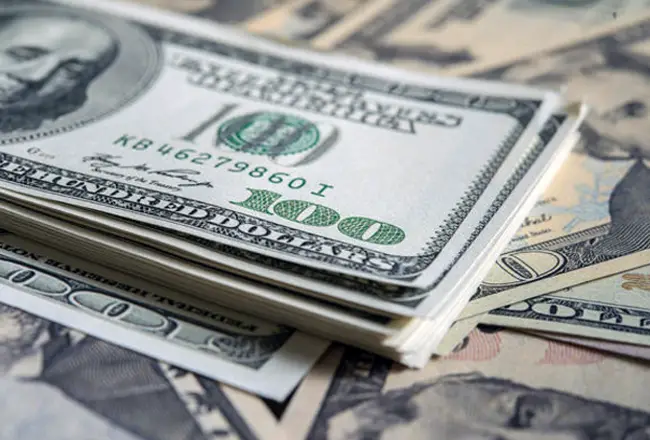Gov. Ned Lamont today introduced Connecticut to “Stay Safe ”“ Stay at Home,” a mandatory order for all “nonessential” businesses to close by 8 p.m. on Monday as part of an increased effort to combat COVID-19.

Specifics as to what constitutes “essential” will be coming on Sunday from Department of Economic and Community Development Director David Lehman, but state COO Josh Geballe said that those sectors expected to remain open include health care, financial services/banking, defense, the food supply chain, child care and public transportation.
Geballe later added auto repair shops and hardware stores to the list of retailers that can stay open, saying that he “thought” liquor stores would be allowed to continue to operate as well.
“It’s tough medicine,” Lamont said. “I think it’s the right medicine.”
Major construction projects already underway will also be allowed to continue, he said.
Nonessential retailers who remain open will be subject to a fine, Lamont said.
THE DALIOS STEP UP
The governor also noted that in the face of so many daycare centers voluntarily closing, a person had donated “millions of dollars to open 26 daycare centers” to accommodate children of health care employees.
Lamont’s reluctance to name the donors ”“ Barbara and Ray Dalio and Dalio Philanthropies ”“ was unexplained.


The Dalios said they are donating $3 million for 26 daycare centers near hospitals where the parents of 1,066 kids work. Another $1 million will be divided between the state”™s two major food banks.
“Ray and I are deeply concerned about these front-line hospital workers, and the additional burdens they”™re bearing as a result of this pandemic,” said Barbara Dalio, wife of the founder of Bridgewater Associates in Westport. “We want to do what we can to make sure they get the childcare services they need so they can provide medical care for others. We are starting with front-line hospital workers whose children are all of a sudden home every day and who don”™t have childcare.”
Lamont also renewed his call for personal protective equipment (PPE) from any company that may have them, noting that New York Gov. Andrew Cuomo earlier had said that Goldman Sachs had discovered and donated 100,000 masks to that state’s cause.
The state has received “a small allotment” of that equipment from the federal government, he said, which is already being distributed to health care facilities.
The governor repeated his call for retired nurses to return to duty, saying that close to 500 have already done so.
He further announced that 35 more Connecticut residents have tested positive for the virus, bringing the total to 194. Close to 1,000 people are being tested every day, he said.
Forty of the infected people have been hospitalized. The governor also said that a fourth person has died from the virus, but did not offer details other than, like the state’s other three fatalities, the person was from Fairfield County.
The latest county-by-county breakdown of coronavirus cases:
Fairfield – 122
Hartford – 29
Litchfield – 8
Middlesex – 5
New Haven – 23
New London – 1
Tolland – 4
Windham – 2
Earlier today, Stamford Mayor David Martin announced a new COVID-19 drive-thru testing site at Cummings Park. The testing site is operational effective immediately and will provide testing Mondays through Fridays, 7 a.m. to 4 p.m.
The city expects to have three drive-thrus available by the end of next week, with a total weekly capacity of up to approximately 2,500 tests.
D.C. DEVELOPMENTS
In the daily White House briefing attended by various administration and health care officials, President Donald Trump announced that the U.S.-Mexico border will be closed to nonessential travel to further help stem the spread of the virus, two days after he announced the same sort of closure of the U.S.-Canada border.
As of 2:15 p.m. today, there were 118 coronavirus cases in Mexico, 923 in Canada and 16,018 in the U.S, according to Johns Hopkins data.
Trump also sowed some confusion about whether the antimalarial drug hydroxychloroquine has potential as a COVID-19 treatment. Trump said that “we ought to give it a try” before adding: “I feel good about it. That”™s all it is, just a feeling, you know, smart guy. I feel good about it.”
But Tony Fauci, the director of the National Institute of Allergy and Infectious Diseases, said “The answer is no” when asked about the drug”™s potential. He later tried to walk back what seemed to be obvious disagreement with Trump. “What I”™m saying is that it might be effective,” Fauci said, noting that medical professionals need to be “collecting data that will ultimately show that it is truly effective and safe under the conditions of COVID-19.”
Trump”™s aforementioned “smart guy” remark was aimed at NBC News reporter Peter Alexander, who asked him what words he’d offer to assuage the American public”™s fears.
“I say that you’re a terrible reporter. That’s what I say. I think it’s a very nasty question,” Trump expounded. “That’s really bad reporting. And you’d better get back to reporting instead of sensationalism.”
Also attending the press conference as a reporter for Newsmax was Sean Spicer, onetime Trump spokesman and “Dancing with the Stars” competitor.
MURPHY’S LAW ON SUPPLY CHAIN RISK
U.S. Sens. Chris Murphy (D-Connecticut) and Marco Rubio (R-Florida) have introduced the Strengthening America”™s Supply Chain and National Security Act, bipartisan, bicameral legislation to combat America”™s supply chain risk and dependence on China for pharmaceuticals.
U.S. Sens. Elizabeth Warren (D-Massachusetts), Kevin Cramer (R-North Dakota, and Tim Kaine (D-Virginia) joined Rubio in introducing the bill in the Senate, while U.S. Rep. Michael Waltz (R-Florida) will lead the companion legislation in the House.
“Coronavirus has exposed a serious risk in our supply chain,” Murphy said. “Being dependent on China for pharmaceuticals ”“ especially at the height of this pandemic ”“ poses a serious threat to U.S. national security and public health across this country. I”™m glad to work with a group of bipartisan senators to prioritize American manufacturers and ensure adequate pharmaceutical supply throughout this crisis and beyond.”
“Once our nation has recovered from this unprecedented crisis, we must take steps to address the systemic vulnerability and supply chain risk that the coronavirus pandemic revealed,” added Rubio. “It is unfortunate that it took a global pandemic to make clear the ramifications of offshoring our industrial base to countries like China. This legislation represents a serious, bipartisan effort to prioritize the rebuilding of our nation”™s productive capacity.”
Specifically, the Act would:
Direct the Department of Defense to determine the extent of its dependency on foreign entities for drugs, active pharmaceutical ingredients (API), and pharmaceutical components.
Additionally, the Defense Department would be required to determine whether this creates a national security issue and to make recommendations to eliminate U.S. dependency on foreign sources.
In 2019, Rubio offered an amendment to the National Defense Authorization Act directing th Defense Department to analyze the extent to which the department is dependent on China for APIs. However, the Defense Department is currently unable to conduct this study because it does not know the volume of APIs sourced from China.
Require drugmakers to provide the Food and Drug Administration with information to determine volume of APIs used in pharmaceuticals.
Currently, the FDA requires drugmakers to include the sources of the drug”™s API, but it doesn”™t require them to provide the volume of API deriving from each of its sources. As a result, the FDA cannot determine the extent of dependency or target potential risks for drug shortages. The new bill would require drugmakers to provide the FDA information about the volume of APIs derived from each of its sources in the prior year, a critical reform to ensure DoD has the necessary information to assess its dependency and vulnerabilities.
That reporting would be included in the drugmaker”™s annual post-market report, which it is already required to submit to the FDA. As a result, the FDA and DoD would be able to ascertain the extent of U.S. dependence on China for APIs and provide the FDA the resources needed to pinpoint “hot spots” more vulnerable to drug shortages.
Restore the Buy American Act”™s intent for Defense Department and Department of Veterans Affairs purchases.
On Feb. 10, the U.S. Court of Federal Claims sided with Acetris, a generic pharmaceutical company, and, according to the senators, “upended” the way the VA implements the Buy American Act. The court determined that, since Acetris sourced the API and other components from other countries but manufactured the final product in the United States, the country of origin would be the United States and would not be based on where the API is from.
“In effect, this could open the door to allowing more pharmaceuticals with APIs primarily based in China to qualify for preference under the Buy American Act,” the senators said. The new bill would revert back to the process that was in place before the Feb. 10 ruling.





















